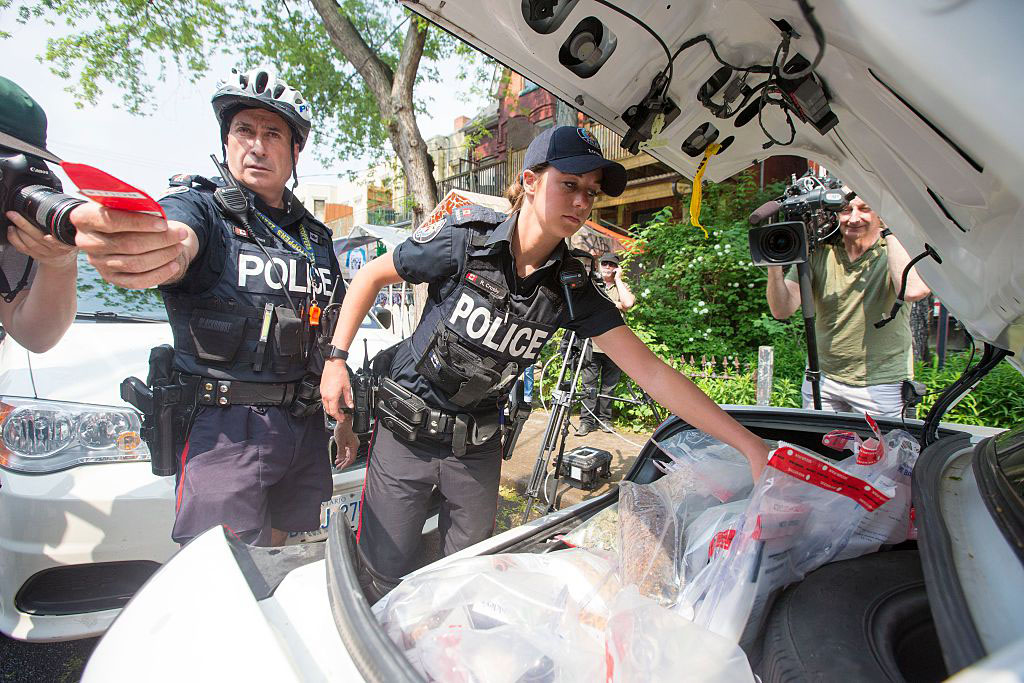As legalization of recreational cannabis comes closer to being a reality, the federal Liberals are coming under pressure to clear the criminal records of those convicted of marijuana offences in the past.

The logic seems clear: why should Canadians suffer by having criminal records — along with potential issues crossing the U.S. border — for doing something that’s no longer illegal?
Last week, Public Safety Minister Ralph Goodale sounded open to the possibility, saying that the government was “weighing all of the legal implications to make sure that we fully understand all the dimensions of this and, when we’re in a position to make an announcement, we will do so.”
Last April, Prime Minister Justin Trudeau said his government would “take steps to look at what we can do for those folks who have criminal records for something that would no longer be criminal … We will move forward in a thoughtful way on fixing past wrongs that happened because of this erroneous law that I didn’t put in place and that I’m working hard to fix.”
In theory, Ottawa should be able to erase Canadians’ records for marijuana possession by just telling the programmers to do it. In 2014, for example, RCMP data experts destroyed all copies of the long gun registry outside Quebec in a four-day process.
However, the structure of the RCMP’s national criminal record databases makes it difficult to consistently pick out records related to marijuana from those for other drugs. That means that erasing marijuana possession (or trafficking) records could turn into a painstaking, manual process, involving searches in court and police archives across the country.
WATCH: Public Safety Minister Ralph Goodale told reporters in London, Ontario Friday morning that for years Canada’s marijuana laws were ineffective, and the Trudeau Liberals are simply making changes that were long overdue and needed.

The problem is that while police forces can enter the type of drug someone is charged with possessing into data which is sent to the RCMP, they don’t have to and often don’t, the force told Global News last May. So a record can show whether someone has a record for possessing an illegal drug, but not necessarily which one.
As well, someone found with a small amount of pot could be charged under one of two sections of the Controlled Drugs and Substances Act, one of which relates to marijuana specifically, and one of which is more generic.
The problem has some things in common with the government’s effort to erase the records of people convicted in the past for consensual same-sex sex.
The principle seems clear, but the problem is that some acts for which people were convicted of — old offences like buggery and gross indecency — were consensual and others weren’t. And there’s no way to tell the difference just by looking at the RCMP’s criminal database.

The government’s workaround is for people who want their records expunged to apply to the Parole Board of Canada, including documents related to the original act showing that it was consensual, or an affidavit claiming that it was consensual and explaining why “reasonable efforts” to obtain documents had failed.
In December, Liberal MP Mark Holland said that the Parole Board would be given $4 million over two years to deal with its new responsibilities. (Applications will be free, and parole board official Talal Dakalbab told a Commons committee that the board hoped that applicants wouldn’t have to seek professional help with the paperwork.)
Public Safety spokesperson Scott Bardsley would not say what the expected turnaround time on an expungement would be.
If that sounds like a lot of hassle, it probably will be — and it’s hard to see how a marijuana amnesty can avoid being cumbersome in much the same way, for many.
Over 17,000 people were charged with cannabis possession in 2016.


Comments